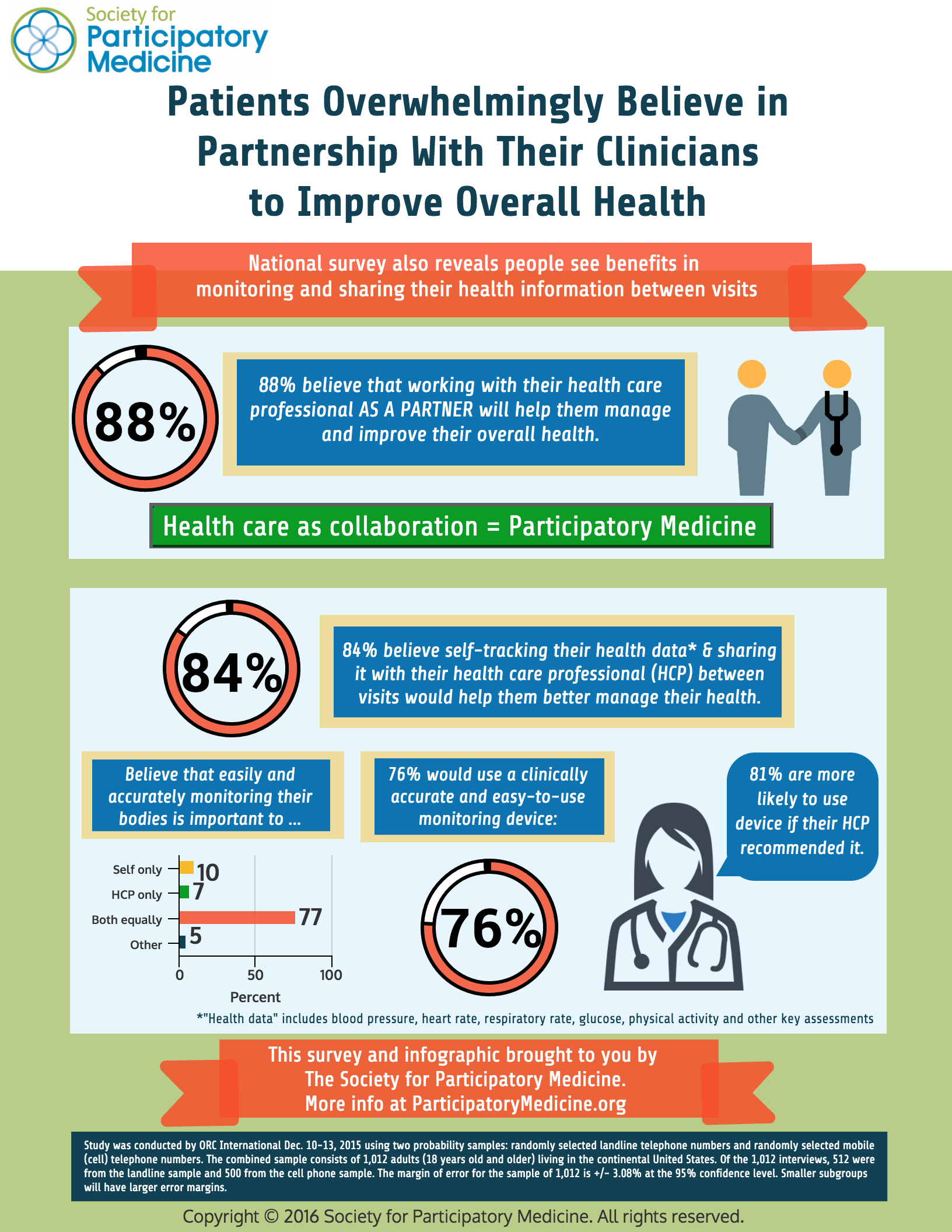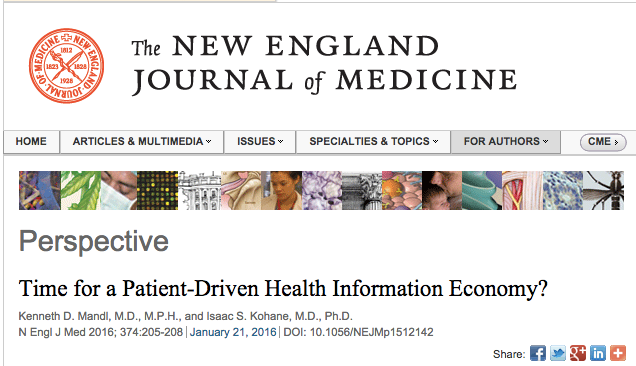e-Patients Blog
The blog of the Society for Participatory Medicine. Want to be a contributor?
Meet Donna Cryer, new co-chair of SPM
At 10 ET today (Feb 25) Donna will be a guest at the White House Precision Medicine Initiative, with several other members of our Society. Watch it on livestream. See also our post on the PMI event a year ago by then-president Nick Dawson. I’m thrilled to announce...
Join the #ScopeScope, March 1, to help Fight Colorectal Cancer
This is a hoot. I say this as someone who first blogged in 2008 about this process. On Tuesday March 1, Mayo Clinic will be streaming video of a colonoscopy, live on Periscope, in a broadcast they’re calling The #ScopeScope. Lee Aase, head of the Mayo Clinic Social...
Participatory Medicine: An Administrator’s Point of View
Guest post by Mark Reifsteck [left], who joined our Society in 2014. Follow him on Twitter at @MarkWReifsteck. To become a member, individually or organizationally, see our Join Us page. It started innocently enough: I made an off-handed comment on the SPM member...
Scholarships available to e-patients for palliative care summit
The Coalition for Compassionate Care of California (CCCC) is inviting e-Patients to apply for a scholarship to their 8th Annual Summit in Newport Beach, California, on May 12-13, 2016. The deadline to submit an application is March 10, 2016. Learn more and apply here....
New England SPM members: free admission to 3/29 local HIMSS meeting
SPM members Janice McCallum and Pat Rioux are also members of the New England chapter of HIMSS, the gigantic Health Information Management Systems Society. They have arranged a special deal for SPM members: free admission to their March 29 meeting (if you register by...
Evidence! New S4PM Survey Shows People Want to Collaborate with Their Doctors and Co-Produce Their Clinical Data
A fundamental precept of participatory medicine is that health care should not be a spectator sport—it’s best practiced in a participatory manner. This requires engagement from both the patient and the clinician. Yet the typical behavior of health encounters is not...
Proposal for a TRULY patient-centered medical record
The other night I participated in a very useful Google+ hangout with SPM members Adrian Gropper and Michael Mascia, and Michael Chen [of NOSH, explained below]. The discussion focused on a subject I think is incredibly important: the patient-centered health record....
John Q. Sherman Award in Patient Engagement: Nominations Open
Our Society for Participatory Medicine is a partner with EngagingPatients.org. Founded in 2013, Engaging Patients is particularly focused on the communication aspects of participatory medicine. They asked us to share this announcement. EngagingPatients.org is pleased...
NEJM opens access – discuss! Time for a Patient-Driven Health Information Economy?
A Twitter chat this morning, prompted by SPM member John Sharp, produced a rapid and wonderful change in an ongoing problem: so often articles about patients aren't open to patients. In this case it's an intriguing new article today in the esteemed New England Journal...
Astounding #RareDisease e-patient story: Jill Viles, via @SusannahFox tweets
Longtime readers of this blog know that for years Susannah Fox was its heart and soul. She was a devoted friend of "Doc Tom" Ferguson, creator of the e-patient concept in the 1990s, and for years at Pew Research she was the dependable guru of Pew's health research....
2016: Opportunities and Challenges in Health Care
In 2016, mHealth technology will occupy center stage in transforming clinical care and clinical research. Smartphone-linked wearable sensors will turn science fiction into reality as these mobile diagnostic tools provide the in depth information that enables ...
Individuals’ Rights to Their Health Information: The Federales Awaken
A long time ago (in internet years), the original HIPAA regulations were promulgated. (The final Privacy Rule was published in 2000.) They've been tweaked and updated over the years, most notably in the "mega-reg" promulgated a few years back in order to implement...


